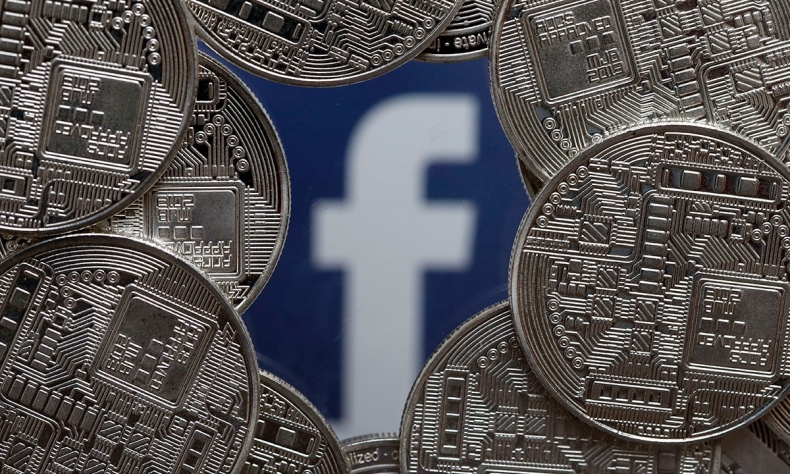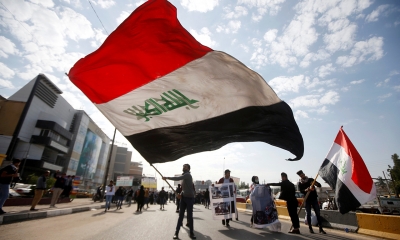Two Sides of the Same Coin: What Makes the Libra Different From the Rest and How Will it Change the World?

Libra’s value, on the other hand, will be pegged to that of major international currencies.
First things first – Facebook’s Libra is technically a cryptocurrency. A cryptocurrency in itself can be defined as a digital currency which uses encryption to complete transactions and ensures that they are very secure and irrevocable. Blockchain technology is then employed to keep an immediate, recurrent record of transactions and account balances, and is usually done so with the aim of shutting those who may be attempting to cheat the system out. It is universally accepted that, based on what can be gathered from the Libra White Paper – which lays out plans to roll out an open sourced Libra Blockchain, among other things – that the Libra can be classified as a cryptocurrency.
There’s Bitcoin, Ethereum, Litecoin, and Then There’s Facebook
Where it differs from other cryptocurrencies pertains to three areas: how it is valued, the degree to which management of the cryptocurrency is decentralised and whether it is a permissioned form of cryptocurrency or not.
Cryptocurrencies such as bitcoin are valued purely on the daily woes of demand and supply. There will only ever be 21 million bitcoin in circulation. Just like gold, oil or any other valuable commodity, it is a scarce resource, and how humans interact with it in terms of demand and use is the prime determinant of its value. You have to work with what you have got when it comes to bitcoin, there is no central bank waiting with freshly minted money, ready to circulate more money into the money supply whenever the political and economic tides change.
Valuation is essentially market driven and therefore quite difficult for any one group to tinker with the value. Libra’s value, on the other hand, will be pegged to that of major international currencies. Not unlike the IMF’s Special Drawing Rights reserve asset, whose value is based on a basket of major currencies which include the US dollar, pound, yen, yuan and euro. For member nations of the IMF, one Special Drawing Rights is currently the equivalent to 1.39 US dollars, and members can draw on allocated Special Drawing Rights holdings in periods when their national reserves have been depleted by selling them to acquire major foreign currency. The Libra is hedging its bets on a different game here, and by pegging it to the value of major currencies such as the dollar, pound, euro, Swiss Franc and yen, it hopes to introduce the world to a cryptocurrency with general stability and contained fluctuations. As it knows that by doing this, it can win the trust and confidence of its billions of users around the world. Keeping its value close to that of these currencies also helps breed familiarity among potential users, as it would be easier for them to calculate and convert prices of everyday goods in the Libra and various major foreign currencies.
Other cryptocurrencies such as bitcoin are also entirely decentralised. Indeed, the nodes (of which 11,000 of them exist) that underpin the daily runnings of bitcoin, for example, can be managed by anyone. If you’re willing to pony up the time, expertise and resources, you can join the club. For bitcoin and other cryptocurrencies, no barriers to entry in the form of a $10 million seat on the board of the Libra Association (the 100 seat association responsible for running the nodes and overall Libra system). Basically, the Libra will be nowhere near as decentralized as other cryptocurrencies.
Libra’s approach to decentralisation vis-a-vis bitcoin and other cryptocurrencies also ties into our next point concerning permissions. Bitcoin, for instance, is permissionless as no special requirements have to be fulfilled in order for someone to host a node, whereas requirements do exist in the case of the Libra, and ones which are heavily restrictive in nature.
We Know What’s in it for Facebook But What About the Rest of Us?
Make no mistake about it – Facebook, along with any early investors/board members of the Libra Association could end up making a lot of money if things run smoothly with the Libra once it’s launched next year. To be able to convince two billion plus users to start using the Libra for regular purchases via virtual wallets, to which no interest is paid, all the while using these same deposits to finance bond purchases on behalf of the Libra Association, could be the stuff of genius. Libra adoption rates have the potential to run into the trillions of dollars, and it’s at that point where yearly returns on interest don’t begin to look so bad. Greater use of the Libra could also mean more money spent by businesses on Facebook ads as the cryptocurrency works to spur more online purchases.
How about the rest of us though? We know that it may help make cross-border transactions and remittances a lot easier and cheaper, along with serving communities across the world who lack access to regular banking services. Still, with that said, what is left in the wake for the rest of the world when Facebook, through the Libra, decides to move fast and break things?
If Facebook were a country, it would already be the 90th largest in the world in terms of GDP. Its tentacles spread far and wide across a number of crucial digital services and apps, like Instagram and WhatsApp. A company of Facebook’s scale has the name value and recognition to make this work. It just has to be careful to not become a victim of its own success, as significant proliferation of the Libra throughout global markets will, and already has (in spite of the currency not being launched yet) attracted unwanted attention. Central banking authorities all over the world, including the Fed, the Bank of England and the People’s Bank of China have all shown concern, each for their own reasons. Libra has given Facebook a licence to print money, and many, perhaps rightfully so, believe that a licence of that sort should not come along so easily.
Timothy Lobban BA (Cantab) is a contributor of China Focus
 Facebook
Facebook
 Twitter
Twitter
 Linkedin
Linkedin
 Google +
Google +







